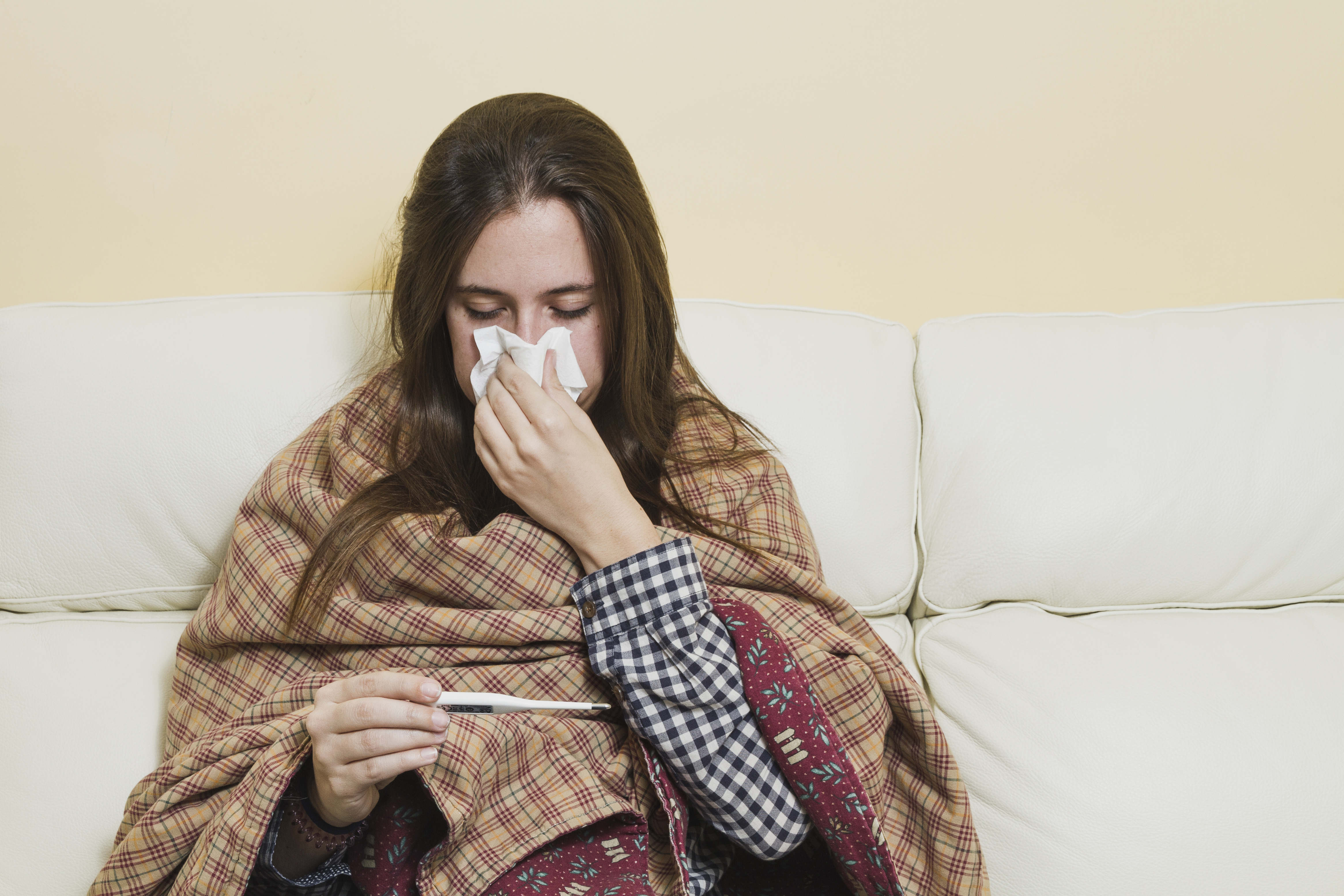Influenza: How to Avoid It, and What to Do If You Get It

By Betsy Hnath
If it seems the flu has had a more crippling effect this season, you're right. Data shows it's more widespread than any time in the past 14 years.
As of mid-January, more people saw health care providers for flu-like symptoms than at any time since the 2003-2004 season, according to the Centers for Disease Control and Prevention (CDC).
Since Oct. 1, nearly 9,000 flu-related hospitalizations were reported nationwide and widespread flu activity is being experienced in 49 states, with high activity noted in 32, including Virginia.
Though specific numbers of adult deaths are not calculated, National Center for Health Statistics (NCHS) mortality surveillance data shows an 8.2 percent mortality rate due to pneumonia and influenza for the week of Dec. 30.
So far, 30 children have died nationwide this season.
Jennifer Foss, Old Dominion's director of Student Health Services, has seen an increase of patients this year, too.
"We are seeing an uptick in cases this year," she said. "But so far, not in the severity of symptoms; approximately 30% of visits by student here yesterday were for flu or flu-like illness."
As much as 20 percent of the U.S. population contracts influenza each year, costing more than $10 billion in direct medical expenses. In addition, the CDC estimates an economic impact of $16 billion in lost earnings and productivity due to flu, not including the intangible costs of personal suffering.
Because one person with influenza can shut down schools, offices and businesses, it's important to consider those around you when you are sick.
"If you have the flu, it's not just your problem," Muge Akpinar-Elci, chair of ODU's School of Community and Environmental Health and director of the Center for Global Health, said."You really need to stay home." While that can be hard for parents with sick children, she concedes, "one sick student can infect an entire class."
Foss agress. "We recommend students with flu stay out of class until fever-free for at least 24 hours, longer if symptoms are prolonged," she said.
Both Akpinar-Elci and Foss recommend a good defense as the best offense when it comes to flu starting with an annual vaccination.
The CDC recommends flu shots for anyone over 6 months old. Young children (0-5 years old), the elderly (65 and up) and those with chronic diseases, such as chronic obstructive pulmonary disease, are most at risk.
A flu vaccine doesn't guarantee you won't get the virus, Akpinar-Elci said, but it can lessen its effects. If you do get the flu, remove yourself from circulation immediately.
Old Dominion offers the vaccine for its students, who can set up an appointment online. The University also offers education on preventing and spreading the virus.
Akpinar-Elci recommends frequent hand-washing and cleaning of common household surfaces such as countertops. And beware: if you come into contact with someone with the flu, touching your eyes or nose will likely transmit the virus.
If you or a loved one do come down with the flu, here are a few of care tips from the U.S. Department of Veterans Affairs (VA):
- Have the sick person lie down if running a fever.
- Use fever reducers such as acetaminophen or ibuprofen - consult your healthcare team for direction - to reduce fever, headache and muscle, joint, or eye pain.
- Allow the sick person to drink as much as he or she can.
- Clean your hands before and after caring for a sick person, and after coughing or sneezing. Wash your hands with soap and water or use hand sanitizers. Sick people should also practice good hand washing.
- Avoid touching your eyes, nose or mouth. Germs often spread this way.
For students, the University provides flu kits to students and sick meals are available for those on meal plans who are unable to go home.
Above all, Akpinar-Elci encourages all to be aware and on guard against this year's flu.
"You are a hero if you protect your health,'' she said. "When you protect yourself, you are really protecting your family, friends and the whole community. Strive to be a health hero."




